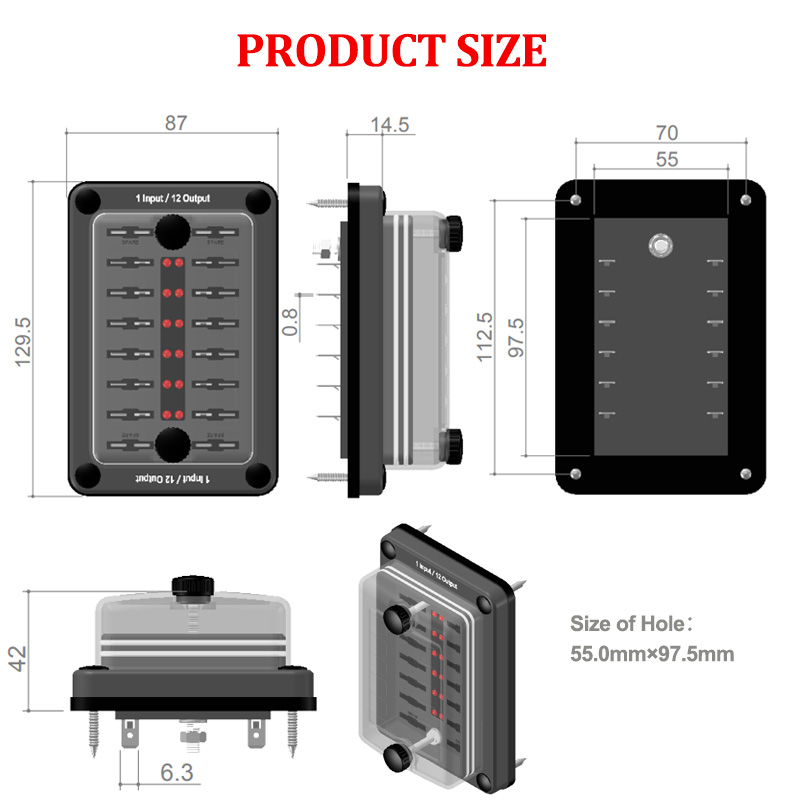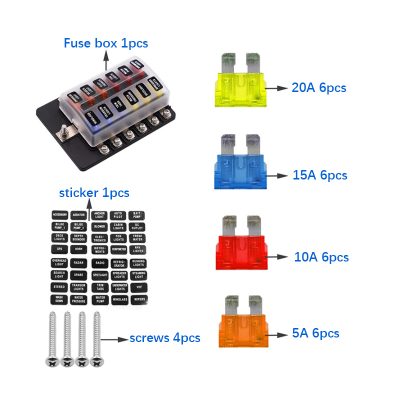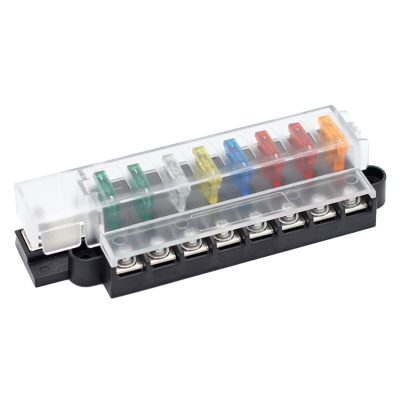Fuse Box Innovations for Enhanced Safety in School Buses and Public Transit Vehicles
News 2025-10-20
Fuse boxes are critical components in the electrical systems of vehicles, serving as the first line of defense against overcurrent and short circuits. In school buses and public transit vehicles, they play a vital role in maintaining operational integrity and passenger safety. These devices protect essential systems like lighting, heating, and communication equipment from potential failures that could lead to hazardous situations. As vehicles become more complex with advanced electronics, the reliability of fuse boxes ensures uninterrupted service and compliance with stringent safety regulations, making them indispensable in high-stakes environments like public transportation.

Application Scenarios
In school buses, fuse boxes are strategically placed to safeguard electrical circuits that support safety features such as emergency lighting and alarm systems. For public transit vehicles, including buses and trains, they manage power distribution to components like HVAC systems, digital signage, and propulsion controls. This setup allows for quick isolation of faults, minimizing downtime and ensuring that services remain operational even in demanding conditions. By adapting to various vehicle designs, fuse boxes enhance reliability in both urban and rural transit settings, where exposure to vibrations, moisture, and temperature extremes is common.
Performance Advantages
Fuse boxes offer superior durability through robust construction that withstands mechanical stress and environmental factors. Their design includes high-quality materials that resist corrosion and thermal shock, ensuring long-term performance in transit applications. Additionally, these systems feature modular layouts for easy maintenance and upgrades, reducing repair times and costs. With precise current ratings and fast-acting fuses, they provide optimal protection without unnecessary interruptions, meeting or exceeding industry standards for safety and efficiency. This reliability translates to fewer service disruptions and lower operational expenses for fleet managers.
Frequently Asked Questions
1. What is the primary function of a fuse box in vehicles?
It protects electrical circuits by breaking the connection when excessive current flows, preventing damage and potential fires.
2. How do fuse boxes improve safety in school buses?
They ensure critical systems function reliably, reducing the risk of electrical failures that could endanger students and drivers during transit.
3. What makes fuse boxes suitable for public transit environments?
Their robust design handles high usage and harsh conditions, offering consistent protection that supports efficient and safe public transportation operations.


